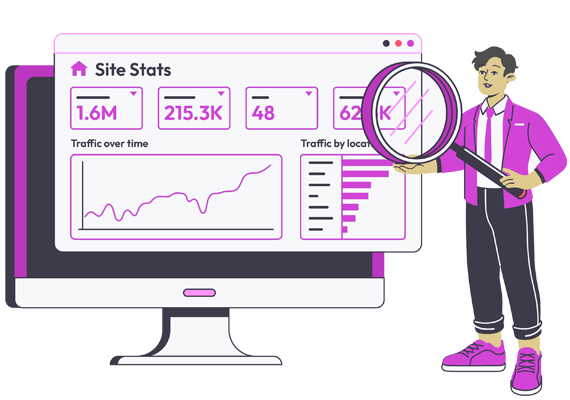
In the digital marketing world, Search Engine Optimization (SEO) ROI is one of the most critical performance indicators for businesses. Understanding how SEO impacts your bottom line can help you allocate budgets effectively, refine strategies, and ensure long-term success. But how do you measure SEO ROI, and what steps can you take to maximize it? This comprehensive guide will walk you through the essentials.
SEO ROI (Return on Investment) is the measurement of how much revenue your SEO efforts generate compared to the costs associated with those efforts. A positive ROI means your SEO strategy is profitable, while a negative ROI suggests a need for optimization.
Demonstrating ROI helps secure marketing budgets.
Understanding ROI allows businesses to refine SEO tactics for better results.
A well-optimized SEO strategy leads to higher organic traffic and revenue.
Measuring SEO ROI requires tracking specific metrics and using a simple formula:
SEO ROI = [(SEO Revenue – SEO Cost) / SEO Cost] x 100
To accurately measure SEO ROI, monitor these essential metrics:
• Use Google Analytics to track website visits from organic search. • Analyze trends over time to see improvements.
• Track the percentage of visitors completing a desired action (purchase, signup, etc.). • Set up conversion goals in Google Analytics.
• Attribute revenue to organic search traffic using Google Analytics Ecommerce Tracking. • For lead generation businesses, calculate the value per lead.
Include expenses such as content creation, link building, tools, and agency fees.
• Higher rankings generally lead to more traffic and revenue. • Use tools like Ahrefs, SEMrush, or Google Search Console.
• Lower bounce rates and higher engagement indicate quality content and user experience.
SEO is a long-term investment. While paid ads offer instant results, SEO takes time. Here’s a general timeframe:
Technical SEO fixes, content optimization, and indexing.
Increased rankings, traffic, and engagement.
Significant ROI with established authority and organic traffic growth.
The answer is a resounding yes! While SEO requires time and resources, the long-term benefits far outweigh the costs. A well-executed SEO strategy leads to consistent organic traffic, increased brand authority, and higher revenue.
By tracking SEO ROI, optimizing strategies, and avoiding common mistakes, businesses can maximize their digital marketing efforts and achieve sustainable growth.
Consider hiring an SEO agency or consultant to accelerate your success!
Contact NowStart by analyzing your current SEO performance, refining your strategy, and focusing on high-impact actions.
Join thousands of users and experience all the benefits our app has to offer. Stay updated with the latest features, exclusive content, and more. Enter your email below to get started!

Affordable SEO Services helps businesses enhance their online presence through expert SEO strategies. We offer tailored solutions to boost your website’s visibility and drive organic traffic, all at an affordable price.